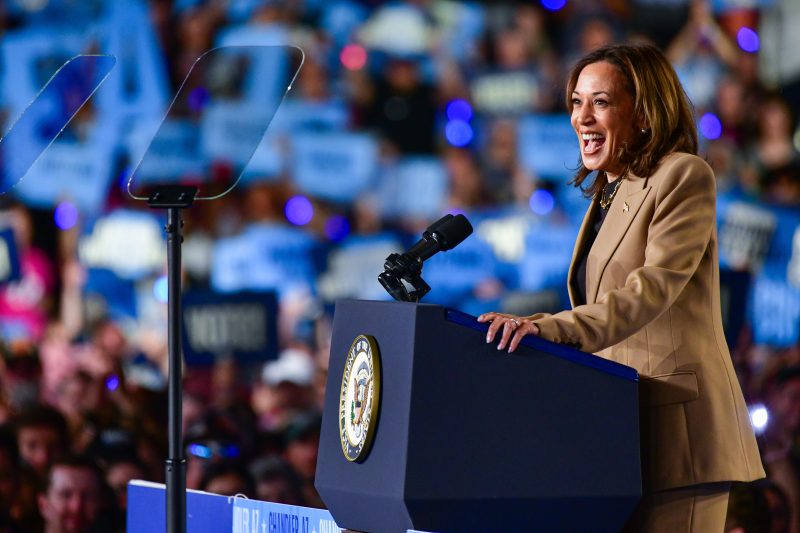
Doctor Praises Harris’s ‘Excellent Health’ in Bid to Stand Out from Trump
Racism and discrimination in healthcare have been persistent problems in American society, disproportionately affecting communities of color. While Vice President Kamala Harris strives to set an example as a prominent figure in American politics, she also faces the same challenges as many others when seeking medical care. Her doctor’s assurance of her excellent health highlights a significant contrast to the ongoing health concerns raised about former President Donald Trump.
The issue of disparities in healthcare is deeply rooted in historical injustices and systemic biases that continue to marginalize minority populations. Studies have shown that individuals from racial and ethnic minority groups often receive lower quality care, experience higher rates of chronic illnesses, and face barriers to accessing essential healthcare services. These disparities not only have devastating consequences for individual health outcomes but also perpetuate cycles of poverty and inequality.
In the case of Vice President Harris, her doctor’s confirmation of her excellent health serves as a powerful message of resilience and resistance against stereotypes and discriminatory practices in healthcare. By publicly sharing her positive health status, Harris challenges the narratives that often portray people of color as inherently unhealthy or at higher risk for certain illnesses. This act of transparency not only empowers Harris as an individual but also helps to debunk harmful myths and stereotypes about health in marginalized communities.
The comparison with former President Trump further underscores the stark differences in how health and wellness are perceived and portrayed in public figures. Trump’s health issues, which have been a subject of public scrutiny and speculation, stand in contrast to Harris’s proactive approach to her health. The disparities in their healthcare experiences also shed light on the broader inequities that exist in the healthcare system and the urgent need for reform to ensure equitable access to care for all individuals.
As Vice President Harris continues to navigate the complexities of her role in shaping national policies and addressing pressing social issues, her emphasis on maintaining good health serves as a beacon of hope for marginalized communities. By prioritizing her well-being and advocating for healthcare equity, Harris sets a positive example for the nation and encourages others to take charge of their health despite the challenges they may face in a system rife with disparities.
In conclusion, the assurance of Vice President Harris’s excellent health by her doctor not only affirms her personal well-being but also carries broader implications for healthcare equity and social justice. By standing as a symbol of resilience and empowerment, Harris challenges prevailing attitudes and practices that perpetuate healthcare disparities in America. Her proactive approach to health serves as a reminder of the importance of prioritizing wellness and advocating for equitable access to quality care for all individuals, regardless of race, ethnicity, or socioeconomic status.
